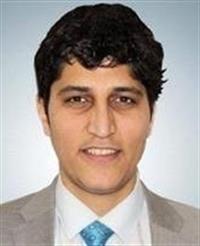Iraq Needs a Coherent Foreign Policy Strategy
 4/3/2019 1:34:53 PM
4/3/2019 1:34:53 PM
3315 View
Sarkawt Shamsulddin
+
-
The time has finally come to craft a foreign policy strategy that will transform Iraq from a war-torn battlefield into a viable democratic and internationally respected actor. Correcting our image abroad is an important step to achieving this diplomatic and economic metamorphosis. Doing so requires leadership based on a strategy that avoids being dragged into regional and international conflicts. It is not enough to say that Iraq wants to become “a meeting ground” for rivals: The hard task is how to achieve that.
Dealing with the Legacy
The actions of the previous regime and the experience that followed the US invasion in 2003 destroyed Iraq’s reputation internationally. Since then, Iraq has not been seen as much more than chaotic and dysfunctional. Although there have been some positive changes, such as securing debt relief and the removal of UN sanctions restrictions, these were ad hoc, American-led initiatives, not the achievements of Iraqi political leaders.
After 16 years, it is time to adopt a coherent foreign policy strategy for Iraq that identifies priorities, challenges, and opportunities. An effective, meaningful foreign policy is not something that happens naturally through easily communicable or implemented digests, rather it is the product of difficult, diligent work. Foreign policy is what shapes our relationships and image on the international arena and, therefore, should be taken seriously.
In recent decades, Iraq’s sovereignty has been routinely violated by external powers seeking to influence our internal matters, the result of which has been prolonged, bloody conflict. The UN Security Council’s sanctions regime under Charter VII in the 1990s, the US-led invasion in 2003, terrorist threats, and the routine violations of our borders by the Iranian and Turkish militaries have all called into question Iraqi sovereignty. Nevertheless, with the defeat of ISIS and the slow return of security, it is time to tell the world that Iraq is back and ready to start a new chapter where its sovereignty is respected as a part of positive and productive relations with its neighbors and partners.
Security and Foreign Military Presence
First of all, the legacy of the previous regime should be addressed head on: Our neighbors need to be assured that Iraq is determined to make peace with them and will deal with its neighbors in a way that ensures regional harmony based on mutual respect. Iraq has to adopt a zero intervention policy with regard to the affairs of neighboring countries and seek meaningful reciprocation. Under no circumstances, should Iraq allow neighboring countries to have a military presence within its borders. There should be a military strategy to achieve self-reliance in the near future because the presence of foreign forces on Iraqi territory is a cause of concern of neighboring countries. However, the early departure of foreign forces may backfire and, therefore, any changes must be carefully considered with the security of the Iraqi people being the primary concern.
The government should invest both in its soldiers and in advanced equipment to protect its borders and prevent the creation of safe havens where radical groups can reemerge. Iraq should consider joining global and international organizations, such as the Gulf Cooperation Council, and work with others to establish a regional security council to increase security cooperation with its neighbors.
Trade and the Economy
The biggest challenge for Iraq is how to overcome international isolation and embrace ties with other countries beyond the realm of security concerns. When it comes to trade, all eyes are on oil, but the new foreign policy strategy should work to attract foreign investment and revive the tourism sector. Handling economic cooperation in the right way can boost our economy and create thousands of opportunities for unemployed Iraqis, whose empowerment should be the focus of our economic strategy.
The Iraqi government should enhance its diplomatic mission in order to manage its debt burden and provide incentives to creditors to invest in Iraq in exchange for debt relief. One area that needs to be reviewed is the visa process for investors, business people, researchers, and journalists, who should be able to easily visit Iraq. Facilitating easier access can help to spur investment and burnish Iraq’s reputation.
Unless Iraq adopts a coherent foreign policy strategy, the progress that we have made so far in opening up to the world will be temporary and empty, rather than strategic and transformative. The current situation is chaotic and has caused great confusion abroad. When we have a strategy to deal with foreign policy challenges with identifiable priorities, the world will pay attention to Iraq. Our leaders must speak with the same voice in Tehran and in Washington: that Iraq seeks no ill will, only a desire to develop economically in harmony with its neighbors and partners.